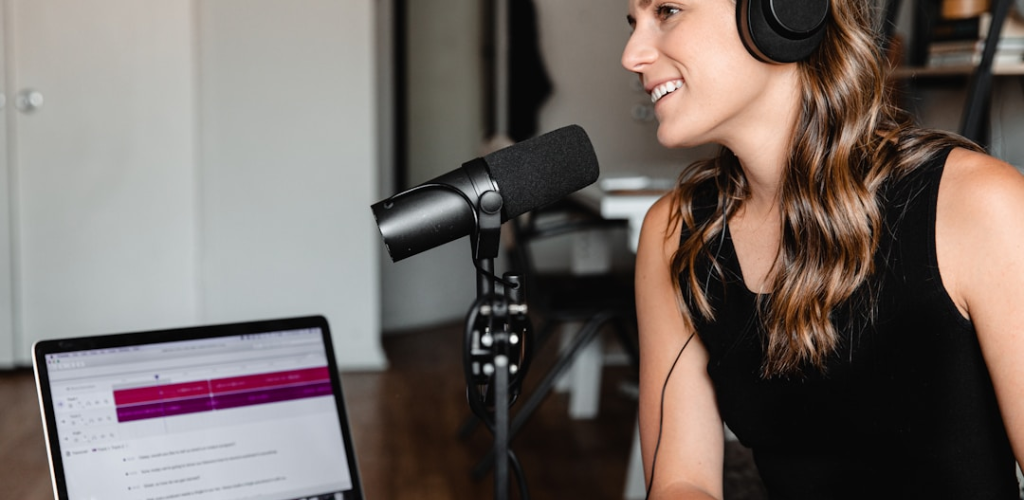Discover the best tools for hosting & distributing remote audio/video podcasts in 2025. Compare features, pricing, and more to find your perfect match.

Podcasting has seen explosive growth, with remote recording becoming a key part of the process for most creators. Whether you’re a seasoned podcaster or just starting out, choosing the right hosting platform is essential for managing content, growing your audience, and, in some cases, earning revenue. But with so many options available, how do you select the one that best fits your needs?
Everyone who subscribes to my newsletter will receive a 50% discount coupon.
This guide will break down some of the leading podcast hosting platforms, focusing on their suitability for remote audio and video podcasting. We’ll explore features, pricing, ease of use, integrations, monetization options, and ideal use cases, so you can make an informed decision by the end.
When I first started podcasting, choosing the right hosting platform felt overwhelming. After researching and testing several options, I found that the best platform really depends on your specific goals and workflow. For example, I initially used Anchor because it offered free hosting and an easy-to-use interface, which was perfect for a beginner like me. It also provided solid integration with Spotify, making distribution seamless.
Later, as my podcast grew, I switched to Buzzsprout to take advantage of its advanced analytics and monetization tools. Buzzsprout also supported higher audio quality, which was important for my audience. For those focused on video podcasting, I recommend considering Riverside.fm. It’s an excellent platform for remote interviews, capturing studio-quality video and audio that’s simple to edit.
Each platform catered to different stages in my podcasting journey. Anchor was ideal for starting out, Buzzsprout was better for scaling, and Riverside.fm for adding professional quality. These experiences taught me that the ‘best’ hosting platform is the one that aligns with where you are in your podcasting growth.
What to Consider When Choosing a Podcast Hosting Platform
Before we jump into the detailed comparisons, here are a few key factors to keep in mind when evaluating hosting platforms:
- Audio/Video Support: Does the platform support video podcast hosting alongside audio?
- Remote Recording Options: Are there features for high-quality remote recording, or do you need to use third-party software like Riverside or Zencastr?
- Ease of Use: Is the interface intuitive, and are there tools to simplify podcast creation, such as one-click distribution or built-in editing?
- Distribution & Reach: Can you syndicate to major directories like Spotify, Apple Podcasts, and Google Podcasts without extra hassle?
- Monetization: Does the platform provide built-in monetization options like ads, listener support, subscriptions, or dynamic ad insertion?
- Cost: Is there a free or affordable tier that fits your budget? Are premium features worth the investment?
- Analytics & Insights: Does the platform offer comprehensive analytics to track your podcast’s performance? Look for metrics like listener demographics, episode downloads, geographic data, and engagement trends to refine your strategy and grow your audience.
- Ease of Use: Is the platform user-friendly and intuitive, especially for beginners? A complicated interface can detract from the creative process, whereas a straightforward platform will help you achieve your podcasting goals more efficiently.
- Customizability: Does the platform allow you to customize and brand your podcast page, episode details, or artwork? Being able to create a unique and professional image is key to standing out.
- Community & Support: Does the platform foster a sense of community among creators or offer robust support? Access to forums, tutorials, or responsive customer service can make a significant difference in your experience.
Now, let’s analyze the top platforms for 2025.
1. Spotify for Podcasters (Formerly Anchor)
Spotify for Podcasters is a free, all-in-one solution backed by Spotify, making it a compelling option for beginners and hobbyists. It supports both audio and video podcasts and comes with built-in distribution to Spotify’s vast user base.
Key Features
- Pricing: Completely free, with unlimited hosting for audio and video content. Spotify makes money through ad revenue sharing and its ecosystem, so no cost falls on the creator.
- Ease of Use: Exceptionally beginner-friendly. Record, upload, and publish directly from the platform. It handles RSS feed creation and syndicates to other directories.
- Remote Recording: Now integrated with Riverside.fm, enabling professional-quality remote audio and video recording features like local file saving and noise reduction directly through Spotify.
- Monetization: Provides features like listener support, paid subscriptions, and ad integration through the Spotify Audience Network, though advanced monetization features are limited compared to premium hosts.
Ideal For
Beginner and independent podcasters who want a no-frills, cost-free setup with access to Spotify’s expansive audience. However, it lacks advanced analytics and dynamic ad insertion, making it less suitable for professional productions or large-scale shows.
Why Choose It? Zero-cost entry point with video podcasting and seamless Spotify integration.
2. Buzzsprout
Buzzsprout is an audio-first platform known for its polished interface, beginner-friendly tools, and excellent distribution capabilities. While it doesn’t host video podcasts, it allows creators to generate video soundbites for social media.
Key Features
- Pricing: Freemium model. Free accounts allow 2 hours of monthly uploads (deleted after 90 days). Paid plans start at $12/month and offer unlimited storage for hosted episodes.
- Ease of Use: Simplifies podcast creation with one-click submission to Apple Podcasts, Spotify, and others. Magic Mastering (a paid add-on) optimizes audio quality automatically.
- Distribution: Syndicates to all major directories and creates a customizable podcast website for discoverability.
Ideal For
Beginners or small businesses who want a dead-simple, audio-only podcasting platform with friendly customer support and growth-focused tools.
Why Choose It? A reliable audio hosting solution with intuitive tools and SEO-optimized podcast pages.
3. Podbean
Podbean is a reliable, feature-rich hosting platform that accommodates both audio and video podcasts. It’s best known for its unlimited hosting plans and unique live-streaming options.
Key Features
- Pricing: Starts at $9/month for unlimited audio hosting. For video podcasting, the Unlimited Plus plan (~$29/month) is available. A free plan offers 5 hours of content total but comes with major limitations.
- Monetization: Provides multiple revenue streams, including ads, listener patronage (similar to Patreon), live show monetization, and premium content subscriptions.
- Ease of Use: User-friendly interface with a mobile app for creators, customizable podcast websites, and seamless distribution to top directories. Supports video upload directly to podcast feeds.
Ideal For
Podcasters looking for unlimited hosting and advanced monetization options. It’s perfect for creators who want to produce both audio and video content or host live, interactive episodes.
Why Choose It? Cost-effective for unlimited plans, with video support and extensive monetization features.
4. Zencastr
Originally a high-quality remote recording platform, Zencastr has evolved to include hosting, distribution, and monetization features. It’s an all-in-one solution for creators who prioritize professional-quality recordings.
Key Features
- Pricing: Free plan for hosting; recording features require a paid plan starting at $20/month.
- Remote Recording: Known for broadcast-grade audio (48 kHz WAV) and up to 4K video quality. Enables separate tracks for each participant and automated post-production tools.
- Monetization: Includes a built-in ad network for dynamic ad placement and listener donation options like Patreon integration.
Ideal For
Podcasters who conduct high-quality remote interviews and want an integrated workflow from recording to hosting.
Why Choose It? Professional-grade recording combined with free hosting makes it highly versatile.
5. Riverside.fm
Riverside shines as a premium remote recording solution, offering studio-quality audio and video for podcasts, webinars, and interviews. Though not a hosting platform, its integrations simplify publishing.
Key Features
- Pricing: Paid plans start at $15/month, offering 1080p video and 48 kHz WAV audio.
- Remote Recording: Delivers local recording for all participants, ensuring flawless quality regardless of internet issues. AI tools like Magic Clips help create shareable promotional content.
- Distribution: Integrates with Spotify and YouTube for seamless publishing.
Ideal For
Podcasters who value exceptional audio and video quality and already have a separate hosting setup.
Why Choose It? The gold standard for remote recording with unmatched video clarity.

Finding the Right Platform for Your Needs
The best platform ultimately depends on your priorities and use case. Are you focused on monetization? Try Podbean or Zencastr. Need a beginner-friendly tool that requires no budget? Spotify for Podcasters may be perfect. Producing video-heavy remote interviews? Look no further than Riverside.fm.

Final Recommendation
Everyone who subscribes to my newsletter will receive a 50% discount coupon.
Start by identifying your podcasting goals. Whether you’re looking to grow an audience, monetize, or simply have a user-friendly experience, there’s a platform tailored to your needs.
For creators looking for an all-in-one beginner option, Spotify for Podcasters is unbeatable in value. For serious podcasters with an eye on quality, a combination of Riverside.fm for recording and Podbean for hosting offers maximum flexibility and professionalism.
Start your podcasting adventure today and bring your creative vision to life.
If you’re still unsure which platform to choose, consider starting simple. Test the waters with a platform like Anchor to get a feel for podcasting without upfront costs. Once you’ve built confidence and a clear direction, you can explore more advanced tools to enhance your production quality and grow your audience. Remember, the best platform is the one that aligns with your goals and helps you stay consistent in creating content.
Frequently Asked Questions
1. What is the best platform for beginners?
For beginners, Spotify for Podcasters is an excellent choice. It offers a straightforward setup process, a user-friendly interface, and it doesn’t require any upfront costs. Beginners can start hosting and sharing their podcasts with ease while exploring additional features as they grow.
2. Can I switch platforms later?
Yes, you can switch podcast platforms later if your needs change. Most hosting platforms offer options to migrate your RSS feed to another service seamlessly, ensuring you won’t lose your hard-earned audience in the process. However, it’s worth planning ahead by choosing a platform that can scale with your growing requirements.
3. How do I monetize my podcast?
Monetization depends on your chosen platform and your audience size. Many platforms, such as Podbean and Zencastr, provide built-in monetization tools like ad placement, listener donations, and subscription services. You can also look at affiliate marketing and sponsorships for additional revenue streams.
4. What equipment do I need for quality recordings?
To achieve professional podcast quality, invest in a good microphone, headphones, and soundproofing. Platforms like Riverside.fm work well with mid-tier gear and provide tools to enhance audio and video quality. Additionally, ensure your recording environment is quiet and free from echo for optimal results.
5. Can I host both audio and video podcasts?
Yes, several platforms support both audio and video podcast hosting. Riverside.fm, for example, specializes in high-quality video production, while platforms like Spotify for Podcasters allow you to easily distribute both formats to a wide audience.
Start by assessing what features align best with your podcasting goals, and don’t be afraid to experiment to find what works for you!
6. How do I grow my podcast audience?
Growing your podcast audience requires consistency, quality content, and effective promotion. Start by optimizing your episode titles and descriptions with keywords to improve discoverability. Promote your podcast on social media platforms, forums, and through email newsletters to reach a broader audience. Collaborating with guests or other podcasts in your niche can also help you tap into new listener bases. Additionally, encourage your existing audience to leave reviews and share your episodes, as word-of-mouth remains a powerful tool for growth.
7. What analytics should I track?
Tracking analytics is key to understanding your podcast’s performance. Focus on metrics like total downloads, listener retention rates, and episode completion rates. Many hosting platforms provide detailed dashboards that show demographic data, geographic locations, and listening devices. This information can help you refine your content strategy and tailor episodes to better suit your audience’s preferences. Tracking trends over time will also help you identify what resonates most with your listeners.


